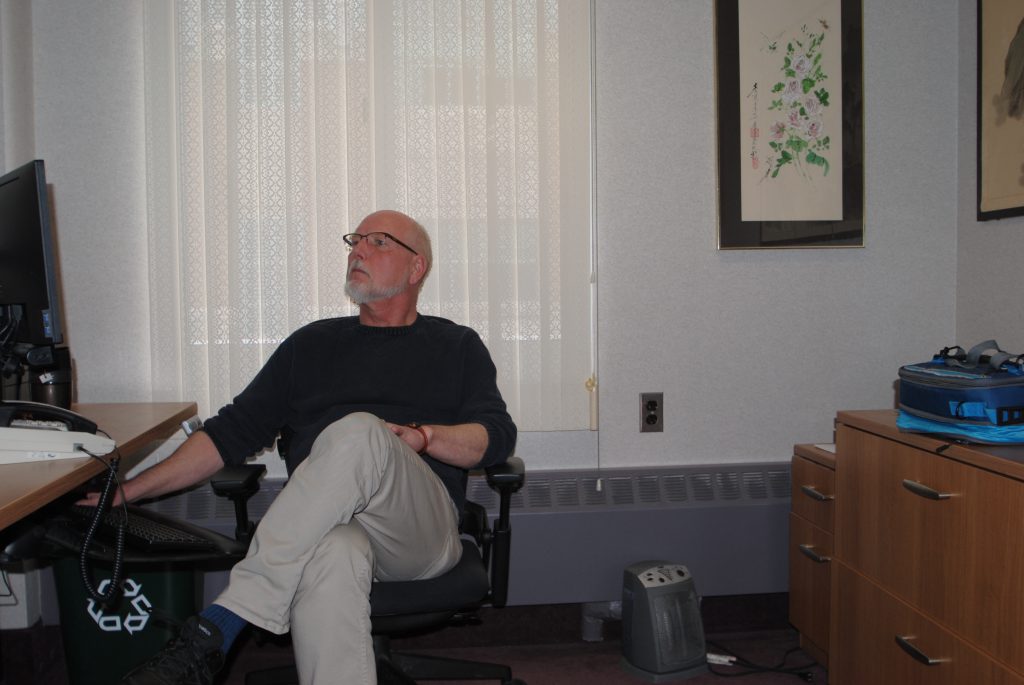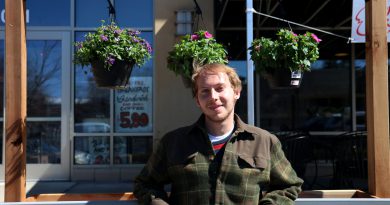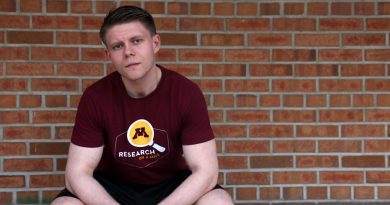For University of Minnesota psychiatrist, small-town roots helps connect with rural patients
Mark Holub said he was “raised to be self-sufficient” in Prairie Bird, Iowa, a town of only 2,000 — where even as a child most days included 12 hours of work.
“Off days simply didn’t exist,” Holub said. “I had cows to milk and fields to till.”
Today, Holub is far from the farm, and while his days are still long, they rarely include milking and plowing. Mark Holub is a clinical psychiatrist for the University of Minnesota. He also specializes in child psychiatry, having worked weekends at Centracare in St. Cloud, Minnesota for the past 22 years.
Holub’s journey to psychiatry came by surprise while he was working at Camp Manikiki, a summer program for children. His rural upbringing gave him an ability to reach kids in ways a lot of the camp’s therapists couldn’t, Holub said. Eventually, he was pushed by a camp nurse to take a job as a recreational therapist at the University of Minnesota.
“Prior to this suggestion, I never really thought about being a therapist,” he said. “I communicated with those kids, and listened to their struggles. Much like my upbringing did for me, I tried to help them build the confidence to face their struggles head-on.”
He first realized this sensibility when he moved to St. Paul in the fall of 1976 for a recreational therapy position at the University of Minnesota – Twin Cities.
“Moving to the city was daunting at first,” he said. “It’s probably why I’m sympathetic toward students from rural backgrounds in my practice. It can be a lot to handle, especially when you’re used to knowing everyone in your community. When I was a kid, it was weird to see a car I didn’t recognize.”
He spent the following seven years providing recreational therapy to terminally ill kids from all over the Midwest, using sports and games as a means of rehabilitation.

“Most of the kids I saw spent the majority of their lives surrounded by doctors. Although treatment was necessary for their recovery, my office was a doctor-free zone. It was all about the kids and making sure they were happy for the time I had them,” he said.
Holub rubbed shoulders with a lot of the medical staff at the university. Friends and colleagues would always say, “‘You really have a gift connecting with these kids. You ever think about being a shrink?’” he said.
By 1989, Holub completed medical school and a residency at the Mayo Clinic. He’s since provided clinical care for people of all ages, moving from a position as a child psychiatrist in Brainerd, Minnesota to the lead psychiatrist for the geriatric unit at Lakewood Health System in Staples, Minnesota, before finally landing at Boynton Health.
Much as he did at Camp Manikiki, Holub continues to instill confidence in his clients today, using his upbringing as a point of contact.
“I see a lot of the same struggles I faced as a young adult in the majority of the patients I see, especially those from rural backgrounds,” he said. “When you were raised like I was, reaching out for help can be seen as a sign of weakness, so you just don’t do it. Issues students from rural backgrounds face seem to stem from the inability to ask for help.”


